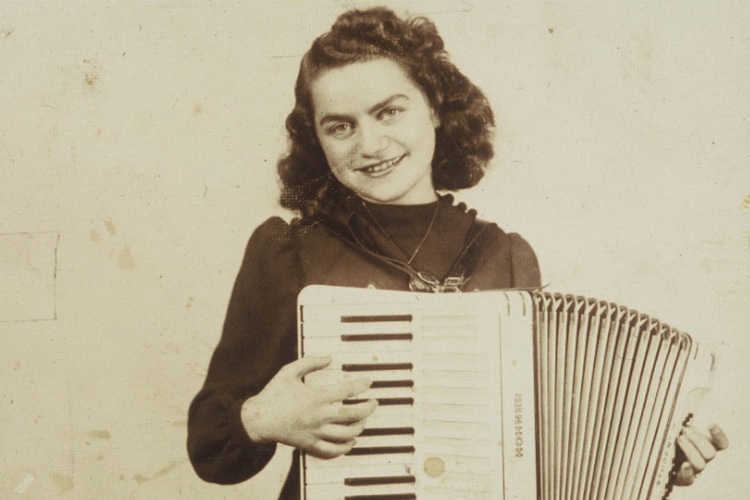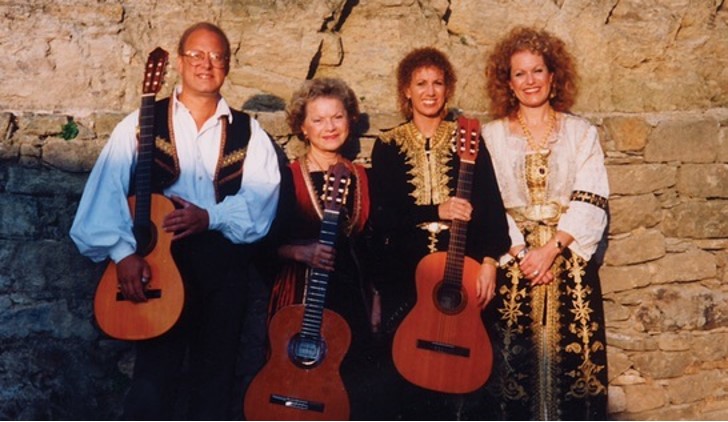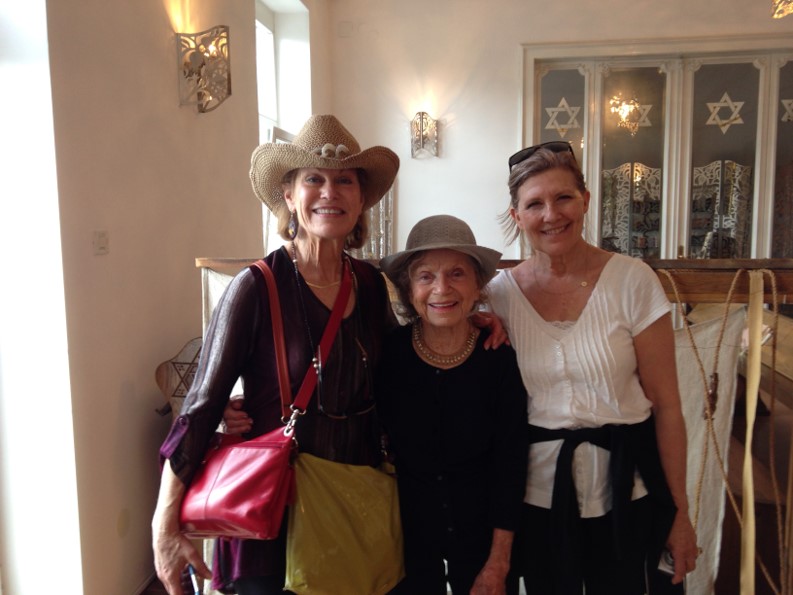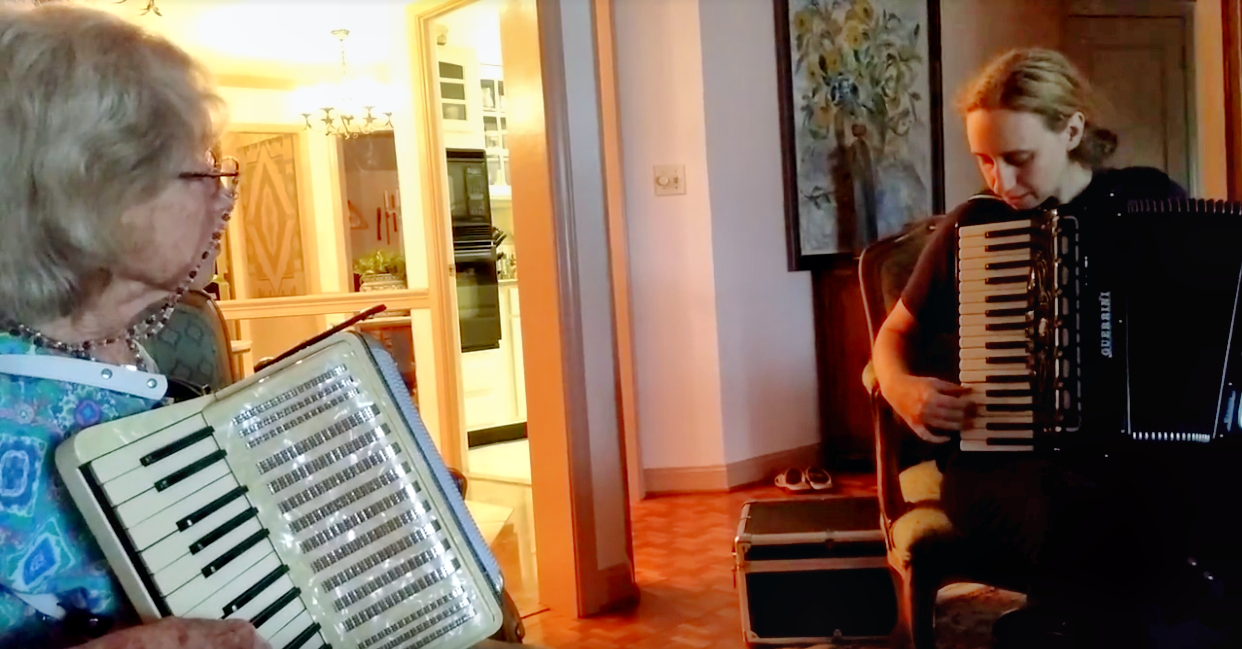
Keeper of the Flame
Whenever I would see Flory Jagoda, it was as if she had been waiting just for me, greeting me with her lovely smile and sparkling eyes. Often, she would say, “Here you are!” And now that she could kiss me–always on both cheeks–and hold my hand tightly, she seemed happy. I know I certainly was.
The truth is, Flory greeted pretty much everyone that same way, whether in her home or a concert hall amid hundreds of people there to see her perform. She was one of those few individuals with the remarkable ability to make each person feel truly special and important to her.

In return, the love and admiration people have for Flory became even more evident following her death at 97 years old on January 29–just before the beginning of Shabbat Shira, the Shabbat of Song. Some sort of synchronicity or irony there for this lifelong singer and musician, composer and recording artist who was also an entrancing storyteller and accomplished teacher, painter, cook and the absolute center of her family with her husband Harry and four children.
Since Flory’s passing, many obituaries, tributes, memorial programs and Zoom gatherings have told the story of her life and accomplishments, including a just-released, wonderful entry in the Jewish Women’s Archive Encyclopedia, co-written before Flory’s death by her oldest daughter Betty Jagoda Murphy with Rachel Amado Bortnick. I am reminded over and over that her serene demeanor masked a powerhouse of energy and ideas, a gatherer of people, innovator and mentor for many women.

I can’t exactly remember where or when I met Flory. It was probably 12 or 13 years ago. By then, she was in her 80s, still with incredible energy, and known to everyone as Nona (grandmother). She was also known as “The Keeper of the Flame” for her efforts to preserve and pass on Ladino music and Sephardic culture. For this, Flory had received the prestigious National Heritage Fellowship from the National Endowment for the Arts, the highest award in the US for a traditional artist. Several CDs feature her lilting voice on both happy and haunting songs in Ladino, some hundreds of years old taught to Flory by her Nona, and some Flory’s own compositions such as the Hanukkah song she wrote in Ladino, Ocho Candelikas (Eight Little Candles), which has become one of the holiday’s most well-known and beloved songs.
Flory, born in Sarajevo, had come to the US in 1945 by way of Italy as a war bride to her beloved Harry. By the 1970s, her children launched, Flory began acting on her feelings of responsibility for keeping her Sephardic heritage alive at a time when Sephardic life was mostly limited to families and communities. She taught her young adult children the songs and through that, Ladino. They formed a group, Flory Jagoda and Family, with their first concert in 1982 and many more into the 1990s. She started other ensembles and continued to perform into her 90’s.
In 2001, she founded the Vijitas Del Alhad, monthly gatherings of mostly Ladino-speaking Sephardim in people’s homes, including hers. We vijitadores sang with Flory. We celebrated Sephardic culture and Ladino through conversation, stories and, of course, food, some of which Flory love making—borekas, boyos, yaprakas, frittatas, kuajados, keftes, boiscochos…a hit parade of Sephardic favorites (and mine!) too little known in our Ashkenazic-centric Jewish world. Bringing people together was a way to re-create the large family and community who, nearly all outside her immediate family and grandparents, remained in Europe and were killed in the Holocaust.
Flory believed women especially have always been the keepers and transmitters of heritage. Without women, Sephardic culture and Ladino wouldn’t survive. So, she made special efforts to teach other women. The NEA fellowship enabled her to bring on a student, Susan Gaeta, who performed countless times with Flory and now seems to channel her teacher.
In 2008, when a small group of women came to Flory wanting to learn the Ladino songs, she taught them nearly weekly in her home the way she had learned from her Nona—by ear with repetition and stories that created a rich experience. This group became Las Tiyas, the aunts, just as there had been a group of tiyas around Flory as she was growing up. After a stroke in 1996, when she was no longer strong enough to play her big concert accordion, Flory took up the guitar and chose the youngest of the tiyas, Heather Spence (aka Tiya Luna), to be “the inheritor of my accordion.” Flory patiently taught Heather starting with the basics. Today, Heather plays the Ladino music on Flory’s accordion with accomplishment.

Flory was an instigator and inspiration who was essential to the current resurgence of Ladino language and Sephardic culture. She carried with her all that came before her to pass it onto those of us who live now so that we, in turn, can pass it onto those who come after. When I remember how she always grabbed my hand and held on tightly, I believe she was willing some of that inheritance to pass through her and into me. From everyone whose hand she ever held to the thousands around the world who saw her perform to those who sing Ocho Kandelikas each Hanukkah…we are now all Flory’s flames.



